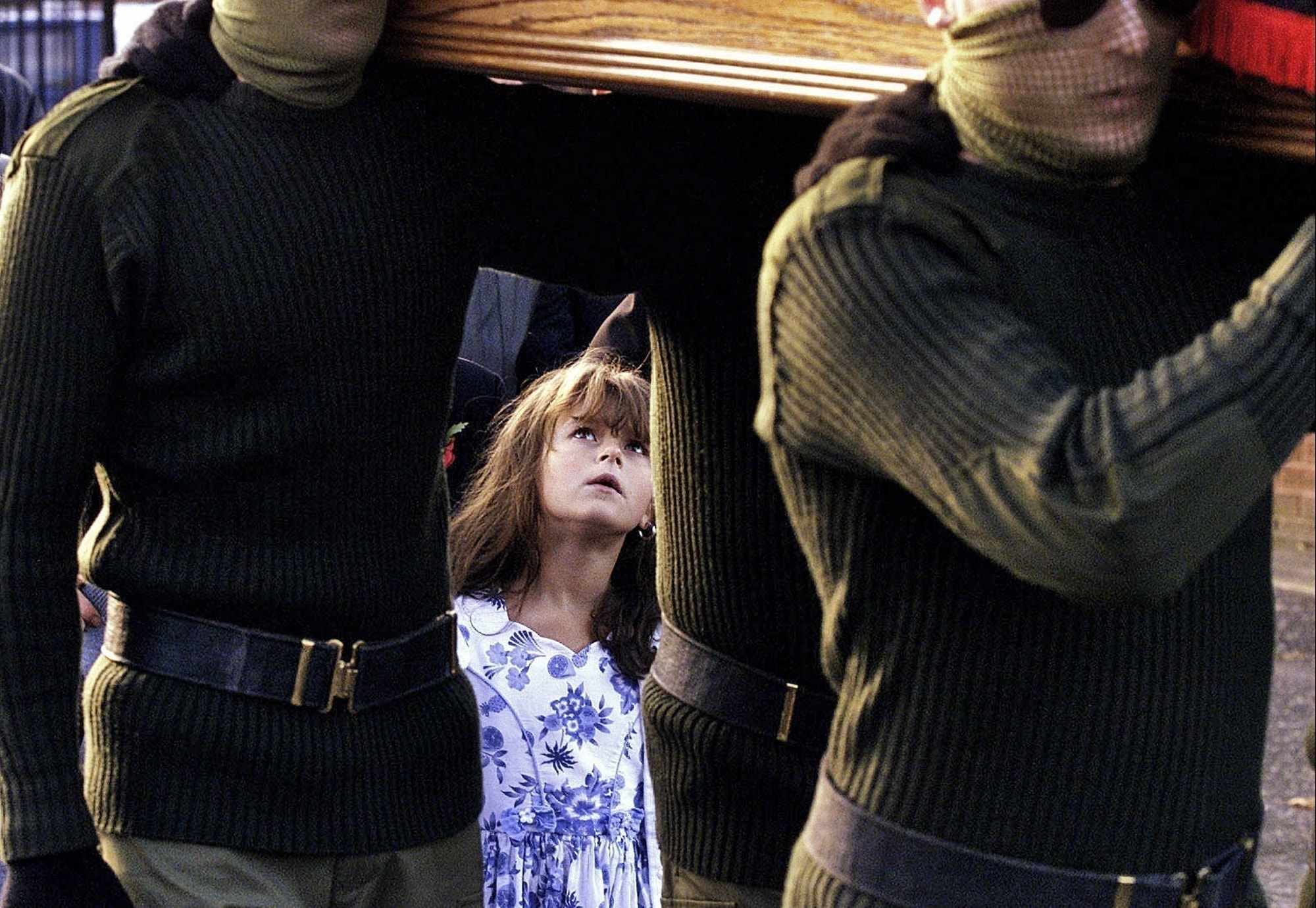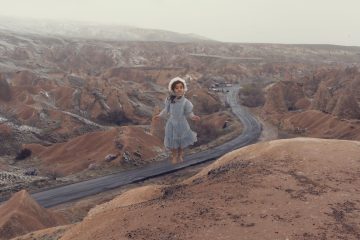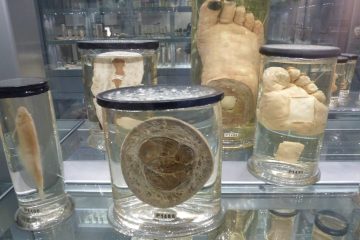
In 2018, Cathal McNaughton was at the pinnacle of his career: he’d just won the Pulitzer Prize for his coverage of the Rohingya refugee crisis in Myanmar and Bangladesh and was doing his dream job in one of the most thrilling cities in the world – Delhi. But, life as he knew it came crashing down when he was denied re-entry into India, forcing him to return to Ireland.
Although he’s stepped back from photography for now, he hosts master classes, workshops and conferences, offering guidance to photographers and charities on how to work in a more ethical manner.
Speaking from his home in the Glens of Antrim in Northern Ireland, Cathal discusses the value of photojournalism today and how the simple act of compassion can make you a better photographer.
ArrayCathal, what led you into photojournalism?
When I was 16, I left school – academia wasn’t really for me. There was a family friend who was the photo editor of one of the main papers here in the north of Ireland called The Irish News and he told my father that if I ever had an interest in photography to give him a shout and he’d take me on as an apprentice. On the day I got my GCSE results I rang him and he said, “yeah, come in and we’ll see what happens!” That’s exactly how I got started.
What was your job there?
Just like any intern or apprentice, I was cleaning the darkroom, developing rolls of film and accompanying photographers on assignments. I was given the occasional photograph to take or spare roll of film to go and shoot some stuff and whenever there was time, the picture editor would have a look and give me some guidance. This was at the tail-end of The Troubles in Northern Ireland, so there was still a lot going on; there were still murders and bombings and things happening, so it was a very busy newsroom at the time, and it was a really exciting environment to be in – you never knew what you were going to be faced with.
I became obsessed, to the point where I dreamt about photographs all the time. My boss told me I was a lunatic – in the nicest way you can call somebody a lunatic
Did you enjoy your work at the time?
Yeah I did, I very quickly realised just how much I loved it. It never, ever felt like a job to me. It was one of those occasions where everything aligns and I was pushed towards a vocation that was perfectly suited to me. I became obsessed, to the point where I dreamt about photographs all the time. It was a bit ridiculous. My boss told me I was a lunatic – in the nicest way you can call somebody a lunatic – because he saw how much an obsession photography had become to me.
What did you do after your job at The Irish News, how did you end up in Delhi?
For a few years, I was freelancing in Ireland for different agencies and newspapers, and from there, I ended up getting a staff job with the Press Association. At that point, I started getting the occasional foreign assignment and began working outside of Ireland. Then I moved to the London bureau and started doing a lot more of the major international news and sporting events.
ArrayI stayed there for a while and worked with the Daily Telegraph, before returning back home to Ireland where I started working for Reuters. I covered Ireland and wherever else they wanted to send me for 7 years. From there I went to Delhi, India, where I became chief photographer for Reuters, in charge of all photo and multimedia outputs from the photo desk in India.
What kind of stories were you covering at that time?
I’ve covered everything from the violence in Kashmir to natural disasters. Of course, there’s a lot of domestic politics that has to be covered because India is now the world’s largest democracy. Then there was the Rohingya genocide in Bangladesh and there was just the day-to-day madness of India as well.
We worked on a rotation basis [because] it took such a toll on you – both mentally and physically. It also allowed other photographers to come in with a fresh look
And it was while you were in Bangladesh that you took the two photographs that went on to win the Pulitzer Prize? How long were you in Bangladesh for?
I was covering that story in Bangladesh for two weeks. The photographers were only there for two weeks at a time. We worked on a rotation basis, where there would be three photographers for two weeks and then another three photographers would come in to relieve them. The reason for this was that it took such a toll on you – both mentally and physically. Also, because it allowed other photographers to come in with a fresh look on what was happening, which is really important on an ongoing story because if you spend too long in a place, quite often you’ll get so used to seeing things that you’ll just ignore them. So it’s important to keep a turnover.
You must’ve seen many tragedies. How did you deal with the emotional toll?
Talking to other colleagues about it is very important.
ArrayAfter going to collect your Pulitzer Prize you were denied re-entry into India. What happened exactly?
We found out eventually that because of the work I’d been doing in Kashmir – highlighting to the world what was happening there – the Indian government took exception to this and they denied me entry back into the country. Officially, they said it was because I had breached terms on my visa and was travelling to restricted areas, but this wasn’t in fact true. Basically, they just didn’t want me back, so that’s why I’m not in India now. We thought we’d be able to sort it out. We attempted to talk to different authorities but we were getting nowhere with it, and this was while all my camera equipment and possessions were still in India.
It took a long time of negotiations to get most of it shipped back. But I had a personal life in India as well. That’s where my girlfriend was at the time, that’s where my friends were. So it was a bit of a pain in the ass, to put it mildly. At the same time, my mother and father became ill. I decided to take control of the situation and returned home to look after my parents and be closer to my son. I also stepped away from photography for a while, to try and process what had happened and find some way of reevaluating what I was going to do.
I’ve developed my own code of ethics and morals; whenever I’m working, I ask myself: what would my mother think?
In a recent article in The Irish Times, you said: “Photography is always about taking things, and never giving back to the people you’re taking from.” Is this something you’ve struggled with in your career and do you feel that photographers have a greater responsibility today?
I think we’ve always had this responsibility, it’s not that it’s greater. I’ve been doing this for quite a long time now and over the years, I’ve developed sort of my own code of ethics and morals and what it comes down to is one very simple principle. Whenever I’m working, I ask myself: what would my mother think? Of course it’s not always as black and white as that, but in the general scheme of things you have to be able to go to bed at night, close your eyes and be at peace with what you’ve done.
ArrayThe problem is, photography is very much a ‘taking’ medium. As press photographers, we’re always dipping in and out of people’s lives, getting information from them and then leaving and they never see from us again, so I think it’s important that you’ve done the best that you can when you meet them, that you be their voice and you do it in a morally correct, empathetic way.
It’s a tough job and there are times you can’t sit and have conversations with every single person that you’ve photographed, or find out their entire back history, because sometimes things happen fast and you just have to move.
Whenever given the opportunity, sit down, listen and go a little deeper; find out the whole picture, not just the picture you’re taking
But, whenever given the opportunity, you should sit down and listen to people and go a little deeper than the 500th of a second that it takes to take their photograph. Find out the whole picture, not just the picture you’re taking.
This pays off in your photographs, too. You often see photographs that are technically brilliant, but they lack empathy, or they lack any real emotion and I think a lot of that comes from the photographer themselves – just the same way a painter expresses himself through his brushstrokes, or a poet uses particular language. I think it’s important to show some sort of compassion with your subject.
ArrayLastly, why is photojournalism so important now?
I think it has never been never more important than now to hold politicians, governments and regimes accountable for what they’re doing – especially at a time when the press is being attacked and told that they’re spreading fake news.
There’s also a lot of amazing journalism out there, but you have to look for it
For example, during the Covid crisis, how is everybody finding out about what is happening? It’s through the news and it’s through photographers and journalists doing their jobs. Perversely, they are the ones being attacked. So, people have got a very twisted view of what photographers and journalists do.
On the one hand, they’re very quick to consume and listen to the information we provide, but on the other hand, they’re not very happy to accept that it’s a necessary job. Of course, there is a lot of fake news out there, but there always has been. There’s also a lot of amazing journalism out there, but you have to look for it.




